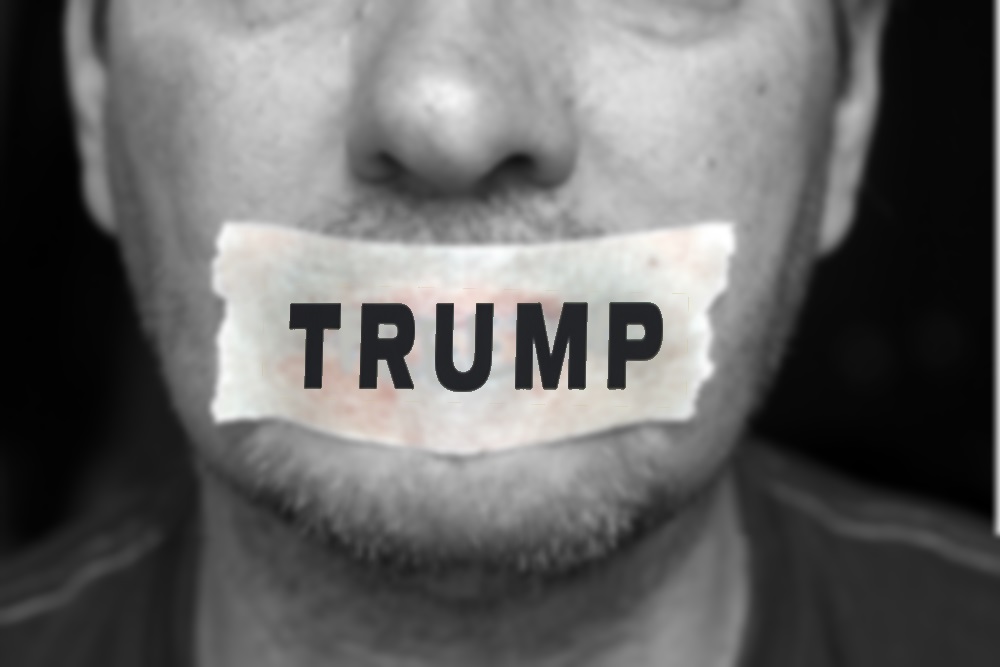At a political rally on February 19 in Fort Worth, Texas, Donald Trump repeated what has become his standard tirade against newspapers that have dared to criticize him.
But this time Trump took a radically different turn, suggesting that as president he will change libel laws so that anti-Trump newspapers could be sued for what he considers “false” and “negative” reporting or opinions.
Said he: “We’re going to open up libel laws, and we’re going to have people sue you like you’ve never got sued before … If I become president, oh do they have problems. They’re going to have such problems.”
Pause for a moment and seriously consider what Mr. Trump advocates.
No less than curtailment of two of the most important and related rights guaranteed to Americans by the First Amendment in the Bill of Rights — freedom of speech and freedom of the press.
The First U.S. Congress in 1789 decided, in the words of that amendment: “Congress shall make no law … abridging the freedom of speech, or of the press…” That has been a fundamental American principle since the requisite number of states ratified the amendment on December 15, 1791.
To state the obvious, allowing people to say freely what they think, and protecting the news media’s free expression, always bothers the natural objects of popular discontent: those who govern, whether in a democracy or a dictatorship.
Both of these essential rights have been curbed, hampered and attacked repeatedly throughout U.S. and foreign history by those who have been exposed by criticism and truth. Under the press-harassing Obama administration, the U.S. dropped to 49 this year out of 180 countries included in the World Press Freedom Index, joining the ranks of countries such as Niger, Malta and Romania.
Walter Olsen, noted legal author and founder of Overlawyered.com, says: “Donald Trump has been filing and threatening lawsuits to shut up critics and adversaries over the whole course of his career.”
Olsen cites Trump lawsuits against a book author whom he claimed understated Trump’s wealth and an architectural critic that called New York City’s Trump Tower “one of the silliest things” that could be built in the city. He threatened to sue an investment firm unless they fired an analyst who correctly predicted that the Trump’s Taj Mahal casino would be a financial failure. Trump even sued comedian Bill Maher over a joke suggesting that Trump was the son of an orangutan.
Would It Stop With Free Speech?
Throughout his campaign, Trump has shown a lack of knowledge about national issues and a disregard for the Constitution and the rule of law.
Would a President Trump confine his frequently offended anger only to anti-press lawsuits? Every president since Franklin D. Roosevelt has used the Internal Revenue Service to harass opponents and critics. When Trump was questioned about ordering the military to torture or to engage in illegal conduct, he said flatly: “They’ll do as I tell them.” And so would the IRS.
The founders of the U.S. were no strangers to free speech and ferocious journalism. They both suffered it and employed it.
But an historic consensus can be found in an 1823 letter from Thomas Jefferson to Marquis de Lafayette: “The only security of all is in a free press. The force of public opinion cannot be resisted when permitted freely to be expressed. The agitation it produces must be submitted to. It is necessary, to keep the waters pure.”
The issue then and now is protecting our freedom and liberty. The election of 2016 will determine our future. On behalf of all Americans and the millions who have gone before us, I sincerely pray our response is the right one.
I would like to hear from readers. Do you feel that the presidential candidates will threaten your rights if one of them is elected president? Comment bellow and let us know.
Yours for liberty,
Bob Bauman JD
Chairman, Freedom Alliance
